5 conferences in 5 weeks – 5 thoughts on responsible tech
5 conferences in 5 weeks — 5 thoughts on responsible tech
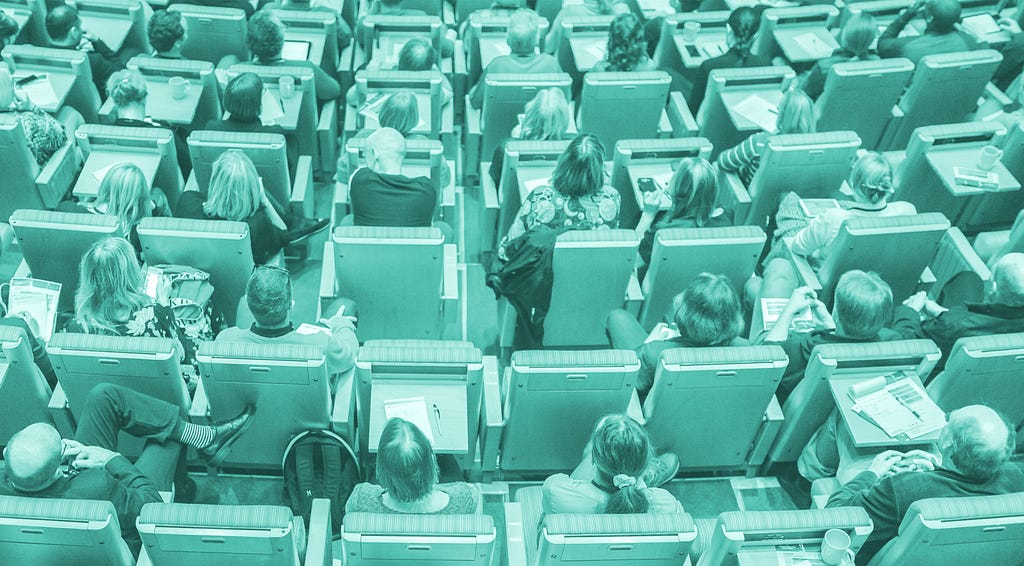
A great advantage of being Doteveryone’s Head of Networks and Engagement is having the opportunity to attend events and connect with new people and organisations. This also forms a core part of the work we are doing to build the field of responsible technology. It is one of the ways that we can better understand what is happening, where, and helps us identify potential alliances and ways of linking up work across the UK and Europe, in particular.
In the last month I’ve attended five international conferences in five weeks and this post is a way of me summarising what I discovered and where I see the connections between people’s work and the kinds of patterns emerging in the field of responsible and ethical technology.
I traveled to Lisbon, Berlin, Gdansk, Istanbul and Paris to discover what people and organisations are working on in the social, tech and policy sectors across Europe. I wanted to understand how those communities viewed responsible tech, where they thought the greatest change would come from, and what they see as the greatest challenges when it comes to making responsible tech the new normal.
Week 1:
Date: 18–19 April 2018
Location: TICTeC, Lisbon
Travel buddies: Sam Brown, Martha Lane Fox
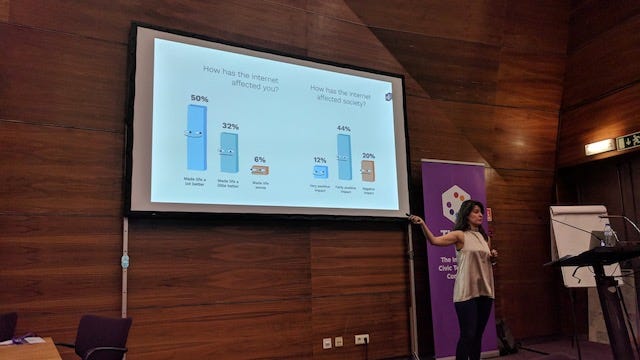
Summary:
TICTeC, run by MySociety, brings together researchers, practitioners, and all those with an interest in how technology is changing society. The community is predominantly civic technologists and others involved in policy and research work with a civic focus.
Highlight:
We hosted a workshop on “making responsible tech the new normal”, where developers from Facebook worked together with civil society leaders on an exercise to try and identify the unintended consequences of a Drone technology. There was rich discussion between the tech developers, policy makers and civil society activists, as the former considered how they would approach regulating tech and the latter was able to see how hard it can be for the technologists to think about unintended social consequences.
Key learning:
Providing a space for professionals working in different sectors to wear different hats and work collaboratively to explore challenges and solutions of technology is crucial. Cross-sector engagement is a must when designing for a responsible future of tech. The themes of ethics and responsibility didn’t come up in any of the other programmed talks and whilst people in this community were interested in the thought exercises, we found it hard to draw out how the civic tech community saw responsibility and digital ethics being applied into what they are building. We’ve asked Matt Stempeck to contribute a piece to a short collection of essays we are publishing in the Autumn, where we’ve asked him to talk more about the relationship between civic tech and responsible tech. The civic tech community is huge, and an important stakeholder to align with in terms of responsible tech becoming the new normal.
Week 2:
Date: 26–27 April 2018
Location: Personal Democracy Forum, Gdansk
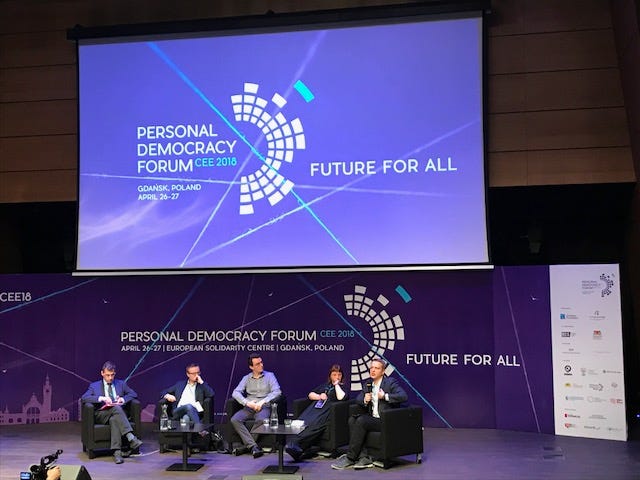
Summary:
Personal Democracy Forum (PDF) is the European version of the New York event of the same name, run by our friends at Civic Hall in New York . They describe the European event as “a platform of ideas and experience exchange for people working for civic participation and transparency in public life with the help of new technologies in Central and Eastern Europe”. This community was pivotal in growing civic tech, but differs slightly to the TICTeC community, which is more research focussed.
Highlight:
It was inspiring to listen to Inna Shevchenko, leader of international women’s movement FEMEN, talk about her activism against patriarchy, dictatorship, religion, and the sex industry and the abuse she had to suffer because of it. She provided a live example of the tricky relationship that can exist between activism, traditional governments and technology and highlighted to me how this varies by context.
Key learning:
At PDF it became clearer to me that even if technology has positive social intentions, for example, to enable collective action or civic protest, it can still have unintended consequences.
One approach the civic tech sector may want to consider using is the pre-mortem, where groups are asked to imagine the failure of a project in the future and explain its possible reasons. Alexey Sidorenko, Director of “Teplitsa: Technologies for Social Good” wrote this post describing a workshop I took part in, where he used the pre-mortem approach, making us consider the possible reasons why an ‘Uber for Democracy’ would fail.
Week 3:
Date: 2–4 May 2018
Location: Re:Publica, Berlin
Travel buddies: Sam Brown, Martha Lane Fox
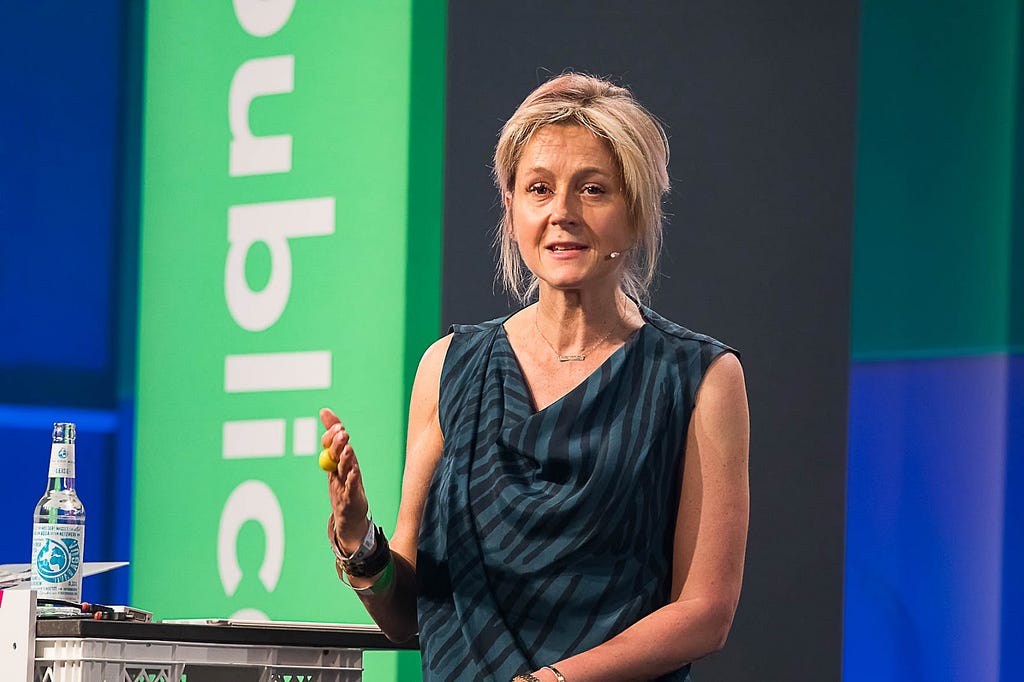
Summary:
Re:publica in Berlin is Europe’s biggest conference on topics that link technology and digital culture with society. WOW, when it comes to tech and society this is the place to be.
Highlight:
Doteveryone founder, Martha Lane Fox, gave a Keynote speech at the festival to around 1700 people on making responsible technology the new normal. How? By creating a movement of people and organisations who care about shaping the consequences of technology and the need for a systemic approach to change. This movement must include government, industry and the public. All have an active role in shaping the impacts of technology on our lives.
Key learning:
What was noticeable about Martha’s speech is it tried to bring two often opposing worlds together. Narratives about the ethics of the internet — concerns about privacy and security — have been dominated by the speculative and critical design communities. It’s been hard to see through the dystopia to know how to act. Whilst talking about the complex and challenging issues of digital ethics, Martha still managed to paint a positive frame for how technologies continue to offer value to our society too. This connected to something in the audience, and something that we have seen more generally in our work. We need to engage people’s hearts as well as their minds, and to create a sense of hope whilst also being critical.
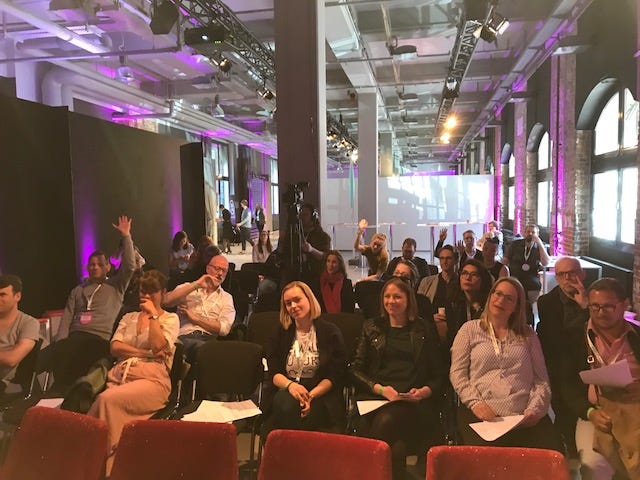
Week 4:
Date: 14–15 May 2018
Location: SIX Wayfinder, Istanbul.
Travel buddies: Cassie Robinson
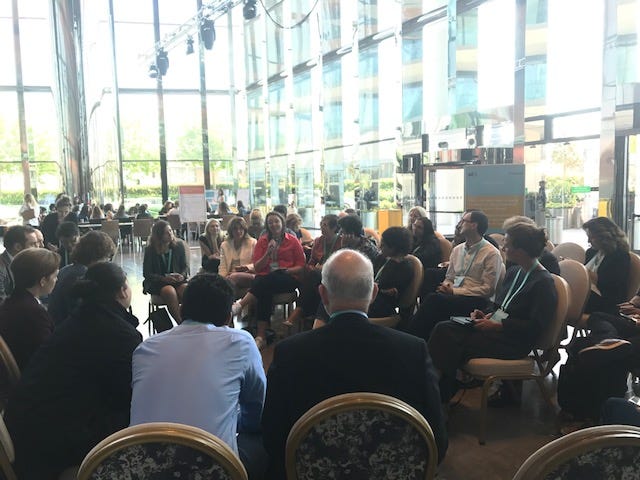
Summary:
Social Innovation Exchange (SIX) is an International network focussed on building the field and practice of social innovation and systemic change. SIX Wayfinder is a yearly event that brings together a multi-sector, multi-national community to learn together and build alliances. This is a community of people who are out in the world trying to create and mobilise change, whether in governments or local organisations, they are practical and ambitious.
Highlight:
I’ve been impressed by the work that the Social Innovation community has been pioneering for many years, from impact investing and tech for good, through to social entrepreneurship and public sector re-design. This was an opportunity for me to understand how they were thinking about or engaging with the idea of digital ethics and responsible tech.
Key learning:
Generally the social innovation community views technology as a tool (one of many) to help address social challenges. They are connected to the ‘tech for good’ and ‘digital social innovation’ communities who are always asking the question “if technology is the answer, what was the question?” The social issue or problem or need always comes before thinking about technology. However, given recent events like the Cambridge Analytica/ Facebook scandal, this community needs to engage with the ethics of technology in a way they perhaps hadn’t foreseen before. This is especially important because the impacts of technology on the most vulnerable and marginalised (groups of people that social innovation has tended to be in service of) are some of the groups most likely to be impacted by algorithmic bias, automated systems and other emerging technologies. So whilst the social innovation field does partner very naturally with the field of responsible technology and digital ethics, because they are both working to achieve positive social change, there is a new level of awareness that the digital ethics and responsible tech communities can bring into the field of social innovation to ensure it stays resilient to the impacts of tech and also helps to shape the debate.
Week 5:
Date: 29–30 May 2018
Location: OECD Forum, Paris.
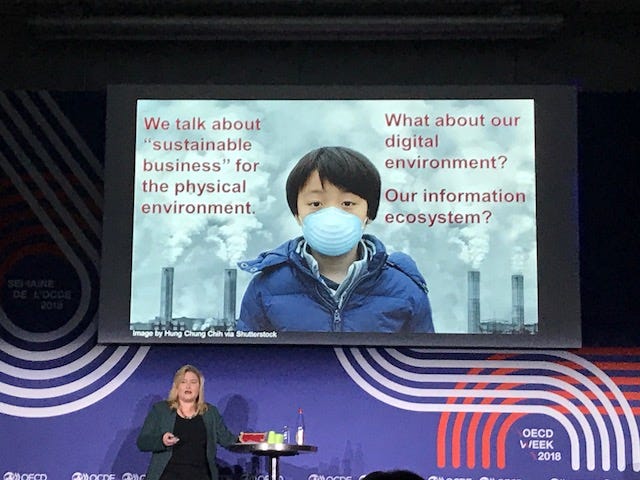
Summary:
The OECD Forum was created in 2000 to discuss the key economic and social challenges on the international agenda. This 2-day public engagement event gathers high-level government representatives, CEOs, leaders from civil society and trade unions as well as prominent members of academia and media. This year, one of the key topics was Digitalisation. Specifically it discussed the enormous potential, but also the challenges, posed by artificial intelligence, big data, and the Internet of Things, which are rapidly changing all facets of our societies and economies.
Highlights:
The panel on Universal Digital Rights & Digital Inclusion was particularly interesting. All panelists agreed that if the digital transformation is to be a force for well-being and inclusion, a set of universal digital rights may prove to be the only viable way out of this 21st century dilemma. Our CEO, Rachel Coldicutt makes a similar point in a recent post on tech ethics; the industry currently lacks an unambiguous set of principles that everyone can sign up to.
Key learning:
I was positively surprised by the number of discussions there were on digital responsibility and rights. It was definitely a reoccurring theme across the conference. There was a sense of urgency to address topics of responsibility in terms of policy, change in mindset and practical tools. However, I still got the sense there was a lack of clarity and common language to discuss these topics.
Conclusions and next steps:
Now, after these five events, here are five things that have become clear to me about the field of responsible tech:
- People want to make Responsible Technology the new normal — from having had the privilege of attending events targeted at a variety of different sectors, including activism, civil society, industry and policy, despite all having different areas of focus, all recognise that technology and digitisation is something that all sectors in society must pay attention to. All see the urgency for developing a new mindset and a shared set of tools to help make responsible technology the new normal.
- There is a need for cross-sector collaboration — because technology is impacting all parts of society, it is important we all work together, share our learning and achieve more together.
- There is a need for a go-to place for Responsible Technology — recognising there is cross-sector interest and a need for cross-sector working is one thing but facilitating that is another. If you’re an organisation or individual interested in finding out more about the field of Responsible Technology where do you go to find out more and connect with others? Currently this isn’t clear. We’ve been working on mapping the field of responsible technology to show who’s doing what and where with Kumo. We’ll be launching this in the next week or so and will be inviting organisations add their information to it.
- There is a need to develop a common and shared language — different sectors are looking at the impacts of technology on society from very different perspectives. In order for these different sectors to be able to work most effectively together, they need to be able to understand one another and one another’s perspectives. This will mean help us to design and build technology that works better for everyone. Our ‘in conversation’ is one way we are trying to achieve this and find common points. We’re also collecting and sharing thoughts from across the field from different perspectives, bringing them into one place to help find those common points of connection between these organisations.
- This language should focus on providing positive visions of our future — it’s that energy and interest in the impacts of technology and society is building but it is important that we capture that energy and ensure that it is being directed towards achieving positive social change. By being solutions-focused, we provide a road-map for achieving a positive future and negating the apocalypse.
The work we’re doing to build the field of responsible technology is possible thanks to generous support from the Omidyar Foundation.
Doteveryone is playing an active role in discovering, connecting and building the emerging field of “responsible technology” across the UK and Europe.
This work includes helping to define a shared agenda and experimenting with more effective ways to coordinate our activities and efforts.
We are currently looking to bring together the organisations who are active in the field that share similar goals around responsible technology and digital ethics.
To find out more please get in touch via [email protected].
5 conferences in 5 weeks – 5 thoughts on responsible tech was originally published in Doteveryone on Medium, where people are continuing the conversation by highlighting and responding to this story.